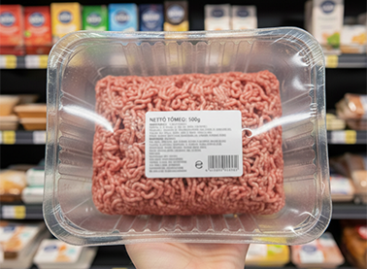We are one big step closer to the circular economy
As of July 1, the environmental protection product fee and extended producer responsibility system will be transformed in such a way that polluters will pay more for the removal, treatment, destruction and reuse of their waste – Anikó Raisz, the State Secretary responsible for the environment and circular economy of the Ministry of Energy, stated in the online edition of Világgazdaság on Wednesday in a published interview.

(Photo: Pixabay)
Anikó Raisz stated: the current producer responsibility system is valid for a narrow range of products, and the collected environmental protection product fee does not fully cover the costs of waste management. At the same time, the environmental protection product fee system has a function of generating funds on the one hand and influencing demand on the other, which tried to encourage consumers to buy less environmentally polluting goods within the given framework. However, the new extended producer responsibility system can only fulfill a revenue-generating function, the producers must fully bear the costs of the proper collection and treatment of the waste generated from the products, he added.
The advantage of the change was that it created resources to start certain activities
The relevant Hungarian report was accepted by the European Union. But in order to transition to a circular economy, the EU expects much greater efforts from all its member states than before. The new system affects product groups that are more challenging from a waste management point of view, i.e. packaging, some single-use plastic products, electrical and electronic equipment, batteries and accumulators, motor vehicles, tires, office and advertising paper, cooking oil and grease, certain textile products and wooden furniture – explained. Anikó Raisz pointed out that the changes will be felt more strongly by those manufacturers who have not been subject to extended producer responsibility, as the range of products affected by the new system is much wider than before. In the new system, based on the “polluter pays” principle, the given manufacturers will be responsible for the product during its entire life cycle, including the costs of waste treatment. The manufacturer will pay a fee specified in the decree to Mohu Mol Zrt., which takes care of the waste management at the expense of this income. Thus, this responsibility will not fall on the state, but on the concession company – he indicated. He noted: the change affects a quarter of the approximately 20 million tons of waste generated annually in Hungary, but the significance of the amount entering the system is much greater in terms of the characteristics of generation and thus the logistical challenges of collection, its value, its harmfulness or the cost of treatment. Construction, industrial or agricultural waste does not belong to the concession system, he added. Anikó Raisz emphasized: the costs of operating the extended producer responsibility system are covered by the fee paid by the producers, the amount of which is established in a decree by the minister responsible for waste management based on the proposal of the Hungarian Energy and Public Works Regulatory Office (MEKH) – as an independent price regulatory authority.
In some cases, the fee will be higher than the current product fee – for example, in the case of car batteries – but in some cases it will be lower
According to the state secretary’s information, control over Mol is guaranteed by MEKH on the one hand, which formulates some fees under its own authority and others as proposals. Control is also provided by the Supervisory Authority for Regulated Activities, which monitors compliance with contracts, and the minister responsible for waste management also has specific powers. There will also be a technical representative who will supervise the investments, since Mohu Mol has undertaken an investment of around HUF 200 billion for the next few years. Among them is a waste incinerator, because by 2035 the proportion of landfilled waste must be reduced to 10 percent. This also requires energy utilization, because the other requirement, the utilization of 65 percent of the waste in its material, is also a significant task. In other words, the reality is that a significant part of the remaining 25 percent must go to the incinerator – Anikó Raisz pointed out. He said: the decree on the extended producer responsibility system was already published in March, the fee decree will soon follow, and the implementing decrees are still to come. He called it important that the concession system only applies to around 5 million tons of waste per year, the amount outside of that, which is three times that amount, remains on the free market. Moreover, the task of the concessionaire only extends to collection, transport, pre-treatment and handing over for treatment. The following work processes, such as disposal and utilization, will once again be free-market, and the concessionaire can perform its own tasks with the help of concessionaire subcontractors. Anikó Raisz drew attention to the fact that the change in waste management does not mean a change for the residents: the reduced utility fees will remain and the waste will continue to be transported.
MTI
Related news
A lake of wastewater is generated in Hungary in two to three weeks
🎧 Hallgasd a cikket: Lejátszás Szünet Folytatás Leállítás Nyelv: Auto…
Read more >High-value shopping basket and more conscious shoppers: growing demand for domestic and healthy products
🎧 Hallgasd a cikket: Lejátszás Szünet Folytatás Leállítás Nyelv: Auto…
Read more >Related news
MBH Analysis Center: The Hungarian economy may accelerate again in 2026, but the Iranian war carries serious risks
🎧 Hallgasd a cikket: Lejátszás Szünet Folytatás Leállítás Nyelv: Auto…
Read more >SPAR is preparing for an Easter rush: it is filling its stores with 570 tons of smoked meat products
🎧 Hallgasd a cikket: Lejátszás Szünet Folytatás Leállítás Nyelv: Auto…
Read more >Focus on the domestic fishing sector at SIRHA Budapest
🎧 Hallgasd a cikket: Lejátszás Szünet Folytatás Leállítás Nyelv: Auto…
Read more >









